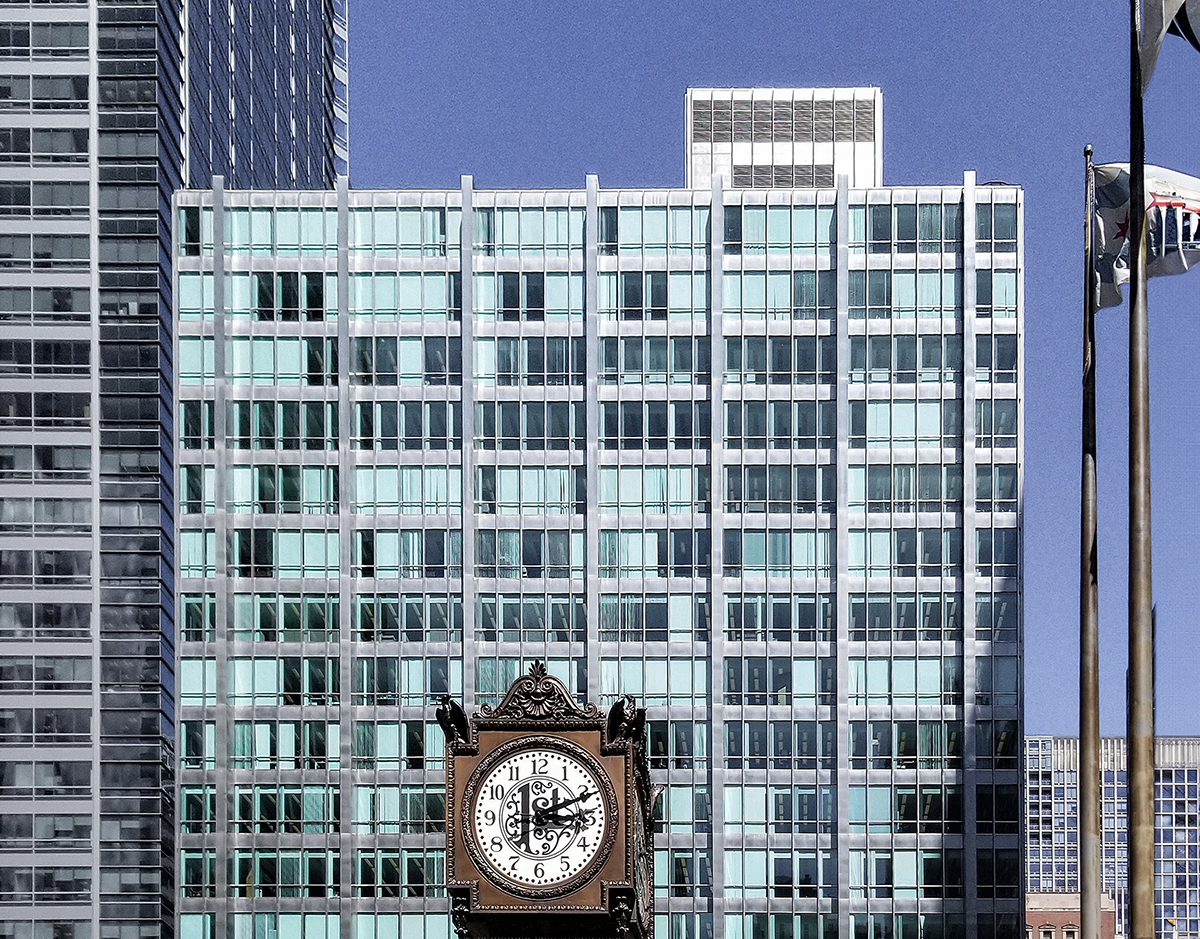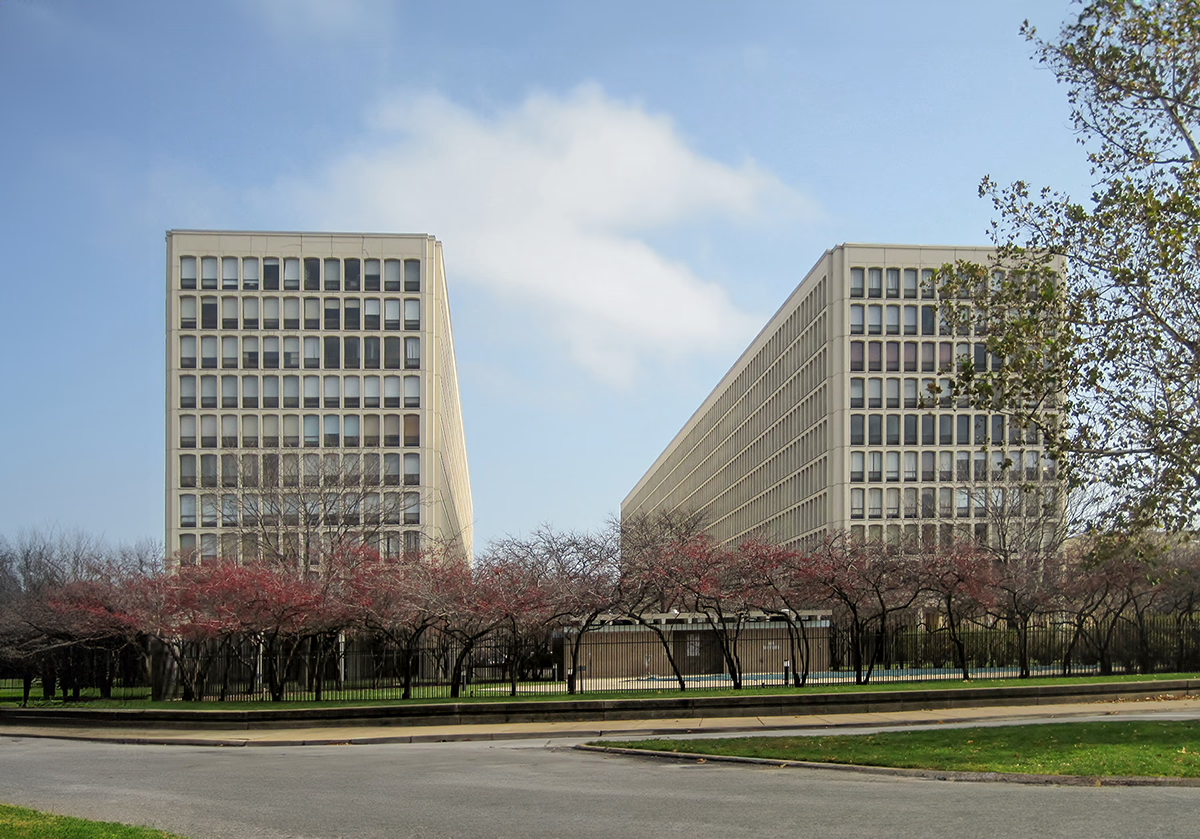Inland Steel Building vs University Apartments


Comparing the Inland Steel Building and the University Apartments is interesting because they both stand in Chicago, IL, and were completed within 3 years of each other, but they were designed by different architects.
This offers a unique glimpse at how rival designers approached projects in the same city during the same era.
Height & Size
The Inland Steel Building is clearly the larger tower of the two, both in terms of height and number of floors. It rises to 331ft (101m) with 19 floors above ground, while the University Apartments reaches 308ft (94m) with 10 floors above ground.
Of course, each project may have faced different briefs or regulatory constraints, which we don't really know about and could also explain the outcome.
Architectural Style
Both the Inland Steel Building and the University Apartments were designed in line with the aesthetic conventions of the International Style style.
At the time, this style was at the height of its popularity. So both Skidmore, Owings & Merrill and I. M. Pei followed what was in many ways expected of them, producing designs that fit comfortably within contemporary architectural norms, rather than breaking with convention.
Uses
The Inland Steel Building is primarily commercial, while the University Apartments is primarily residential.
The University Apartments offers 540 residential units.
The University Apartments also provides 220 parking spaces.
Structure & Facade
Both towers share the same structural solution, a Frame system.
A frame structure uses a grid of columns and beams to carry the building's loads. This frees the walls from structural duties, allowing for flexible floor plans and larger windows.
However, when it comes to the facade, both buildings use different approaches. The Inland Steel Building uses a Curtain Wall facade, while the University Apartments uses a Window Wall facade.
A Curtain Wall facade like the one seen in the Inland Steel Building uses a lightweight glass curtain wall hung from the structure, while a window-wall facade like the one seen in the University Apartments uses panels fitted between floor slabs, leaving slab edges visible.
| Inland Steel Building | University Apartments | |
|---|---|---|
| Skidmore, Owings & Merrill | Architect | I. M. Pei |
| 1957 | Construction Started | 1959 |
| 1958 | Year Completed | 1961 |
| International Style | Architectural Style | International Style |
| Commercial | Current Use | Residential |
| 19 | Floors Above Ground | 10 |
| 3 | Floors Below Ground | 1 |
| 101 m | Height (m) | 94 m |
| 7 | Number of Elevators | 8 |
| Frame | Structure Type | Frame |
| Steel | Vertical Structure Material | Concrete |
| Yes | Facade Structural? | Yes |
| Glass, Stainless Steel | Main Facade Material | Glass, Concrete |
| IL | State | IL |
| Chicago | City | Chicago |
| 30 W. Monroe Street | Address | 1400 1451 E.55th Street |